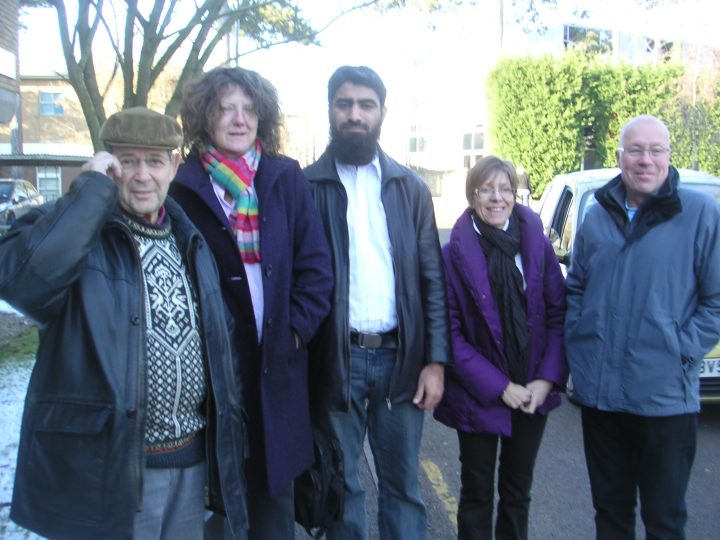Pakistan industry at a cross roads
January 2009
We have spent the last two days discussing Pakistan with Dr. Warren Weinstein of J.E. Austen. Warren has been running the Austen office in Pakistan for some years and has gained a strong reputation for work in such sectors as dairy, furniture and marble. His team is currently concluding a project for the Pakistan government on upgrading the entire leather sector. Improved training is all part of this and it is possible that the University could play a central role.

We have a very strong alumni base in Pakistan which is still growing although we have been hit by serious visa issues in recent years. This project recognises the need for in country training at a variety of levels and across the sector from basic tanning to fashion and design.
Our new Chancellor was born in Pakistan and so from the top down there is great interest and support for us to be doing more there. While most of his meetings are with Dr Wilkinson and Delia Heneghan (international office) Dr Weinstein also met the Vice Chancellor, School of Fashion, waste sciences and others to get a feel for our growing integrated approach to the leather sector.
In line with all this Ali Amjad, a teacher from the National Institute if Leather Technology in Karachi, has been studying with us for the last three months. He returns to Karachi before the end of January.
Putting the current recession aside the Pakistan industry is certainly at a cross roads with a split between the better tanners who can get top prices for their leather around the world – Pakistani raw material is plentiful and pretty good – while many of the garment makers find a ceiling imposed on their prices by an international view that considers the Pakistani position to be essentially bottom feeding. This leads to a vicious circle that ends up with these makers importing Africa raw in lower grades to meet the price point with essentially black pigmented leathers and this reinforcing the low end image.
With the pound being weaker and the British consumer not inclined to pay more for clothing and footwear, brands and retailers will need to find new sources. Perhaps Pakistan can capitalize on this moment as the rupee is also weak at this time.
It was also a delight to have Ludwig Dose’s son in the BSLT tannery completing the installation of the drums. I have always found Dose drums great for scaling up from development samples and it will be exciting to see them working in the plant. With the new staff all now starting to fit in and with this the overall age dropping fast having a young supplier involved at an early stage of his career is also very positive.
Photo shows Dr Weinstein (left) and Ali Amjad (centre) with Mark Wilkinson and staff from the Waste Management team
Michael Redwood
7th January 2009